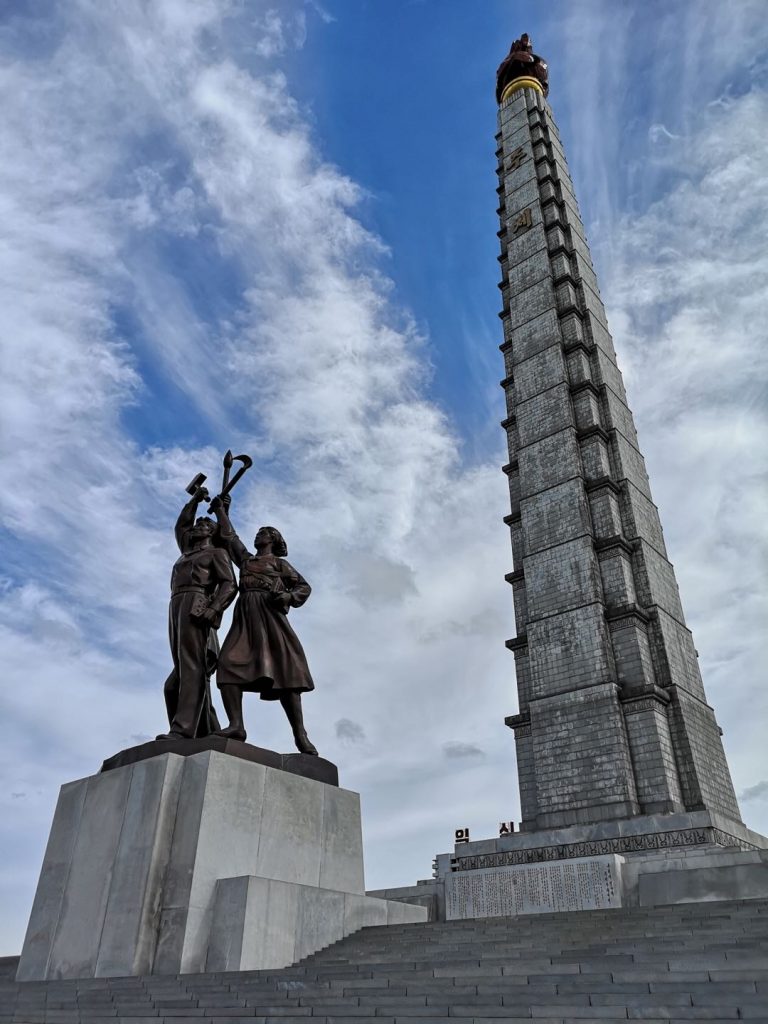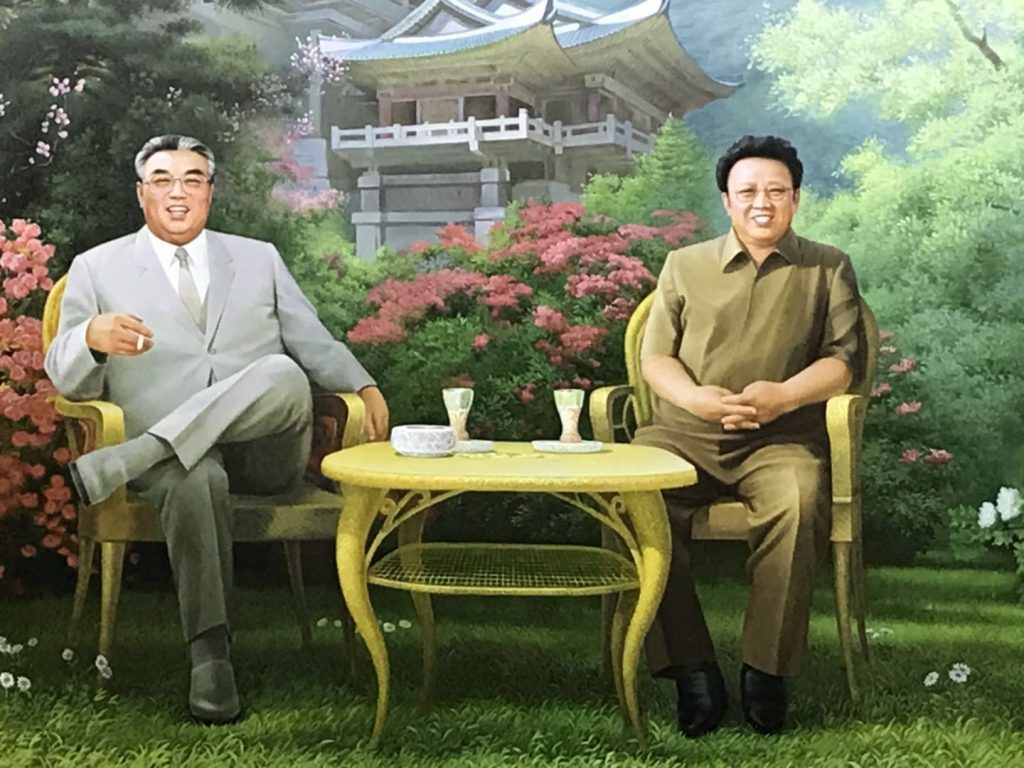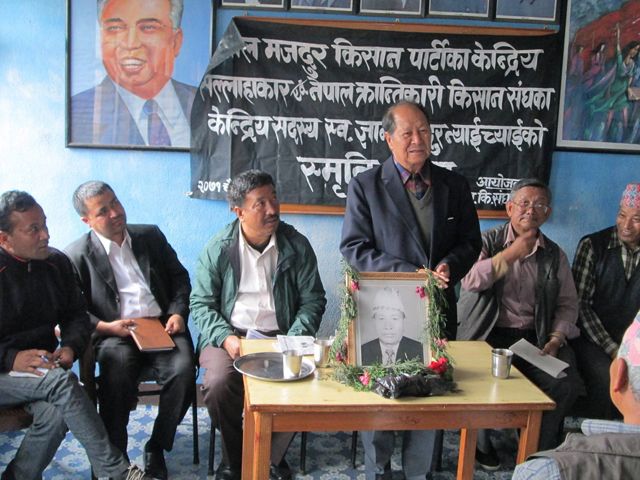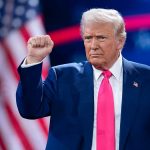
What is the Juche ideology? Those who’ve done a little reading on North Korea (DPRK) will know that explaining their ideology as ‘socialism’ or even ‘Marxism-Leninism’ (often written as ‘Stalinism’) is quite insufficient.
If you were to ask a Korean, they would tell you that they follow what is Juche, political theory and philosophy unique to Korea and first conceptualized by president Kim Il-Sung. It certainly has its roots in traditional Marxism (the Workers Party of Korea began as the Communist Party of Korea) but it has since embraced what it considers an entirely unique philosophy. So what is Juche exactly? As in… The word.
Table of Contents
- What is Juche meant to mean?
- Juche’s link to Marxism
- What are the unique features of the Juche Idea?
- What Is Juche’s universality?
- Juche around the world
What is Juche meant to mean?
The word itself is controversially translated. Koreans do not translate it into an English equivalent in their writings, though attempts have been made by foreign observers to draw meaning from the word. Most often, the ideology is described as meaning ‘self-reliance’ in reference to the Korean socialist model of opposing foreign influence in their affairs, pursuing independence and arguably promoting extreme autarky.
While there may be some relevance to this translation, it misses quite a lot. The DPRK is not the ‘Hermit Kingdom’ often touted in the press and trade does continue through many countries. Prior to the collapse of the USSR, North Korea was happy to accept assistance from countries in the socialist bloc, only now being ‘isolationist’ because international sanctions demand it.
What they have in common with this self-reliance concept was a refusal to be ‘subjugated’ in trade and reliance on others. During the 1960s and 1970s, while the USSR was controlled by Nikita Khrushchev and later Leonid Brezhnev, attempts were being made to draw North Korea into the ‘Comecon’. This was the socialist bloc’s main trade partnership and could maybe be considered a socialist equivalent to the likes of the EU.
After numerous attempts through diplomats, Kim Il-Sung flatly refused to join on the basis that joining the Comecon would sacrifice Korean independence for the sake of better trade deals, potentially making them ‘subjects’ of the USSR. Some might argue that this was a way of avoiding becoming too partisan in the Sino-Soviet split. Though the flat denial seems rather pointed for someone supposedly walking this fine line.
Koreans, if pushed, would often describe the term as meaning ‘Subject’. As in to be the ‘subject’ of one’s own experiences, possibly translated further as ‘self’. Less focus on ‘self-reliance’ but definite focus on internal cohesion. As opposed to a very externally focused policy of many Marxist-Leninist states.
The ideology is often seen as being a much more human-centered approach to Marxism, seeing man as the masters of destiny. The term has supposedly even been used as a Korean translation for parts of Marx’s writings. Seeing it as being self-explanatory in explaining certain elements of socialist theory. In this sense, the word is both a descriptive term and a title for an ideology, giving its usage some flexibility.
“In a nutshell, the Juche idea means that the masters of the revolution and construction are the masses of people and that they are also the motive force of the revolution and construction.”
Kim Jong-Il, Let Us March Under the Banner of Marxism–Leninism and the Juche idea, 1983
Juche’s link to Marxism

This is probably the most controversial matter. Depending on who you ask, the ideology is a continuation of Marxism, a deviation from it or is entirely separate and marks a break from Marxism entirely. In Kim Il-Sung’s time, such a distinction as it being entirely separate was not really made. Indeed, much of what Kim Il-Sung himself wrote was rather more focused on the immediate tasks of the time, leaving arguably the most seminal work on the ideology to be written by his son, Kim Jong-Il.
Kim Jong-Il’s 1982 work on the subject is often touted as the primary explanation of the concept. Within the work, Kim Jong-Il is quoted as saying:
“The theoretical activities of our Party that has originally clarified revolutionary principles and ways to meet the demands raised by the revolutionary practice of our time, constitute a brilliant example in adhering to the revolutionary principles of Marxism-Leninism and developing the revolutionary theory of the working class onto a new, higher plane.”
Kim Jong-Il, On the Juche Idea, 1982
So Kim Jong-Il would have viewed this ideology as a continuation of Marxism-Leninism while developing it to a ‘new, higher plane’. This is hardly alien to Marxist-Leninist ideology. Josip Broz Tito in Yugoslavia, Deng Xiaoping in China and Abimael Guzman in Peru all had very different ideas from both each-other and orthodox Marxism-Leninism while claiming to uphold a continuation of it.
Things are elucidated in Kim Jong-Il’s 1983 work. Published on the 165th birthday of Karl Marx. This work makes explicit both the link to Marxism-Leninism within the ideology, along with developments made to view the ideology as a unique ideological development that merely builds off of Marxism-Leninism as its basis.
“To adhere to the Juche standpoint in the revolution and construction conforms with the essential character of Marxism-Leninism as a creative doctrine. Only through a correct application of MarxismLeninism from the standpoint of Juche, can the communists display its might to the full and further enrich its treasure house by creating new revolutionary theories.”
Kim Jong-Il, Let Us March Under the Banner of Marxism–Leninism and the Juche Idea, 1983
What are the unique features of the Juche Idea?

“It had already been known that the world consists of material and changes and develops as a result of the motion of material. Our idea gives a new world outlook by answering the question of who is the master that dominates nature and society and where is the force that transforms them. That the world is dominated and reshaped by man is a new viewpoint on the world in relation to man.”
Kim Jong-Il, On the Juche Idea, 1982
This quote may be a bit confusing out of context. How is the idea that the world is reshaped by man a new concept? Surely this is pretty basic human history stuff. Well, the key to this is how Marxism has always explained human history. This is also where critiques of the ideology lie, in how they view the supposed deviation from traditional Marxist ideology.
“The mode of production of material life conditions the general process of social, political and intellectual life. It is not the consciousness of men that determines their existence, but their social existence that determines their consciousness. At a certain stage of development, the material productive forces of society come into conflict with the existing relations of production or – this merely expresses the same thing in legal terms – with the property relations within the framework of which they have operated hitherto. From forms of development of the productive forces these relations turn into their fetters. Then begins an era of social revolution. The changes in the economic foundation lead sooner or later to the transformation of the whole immense superstructure.”
Karl Marx, A Contribution to the Critique of Political Economy, 1859
What is expressed here is that Marx believed in a concept known as historical materialism. The belief that human development and consciousness is formed by direct material conditions. From this, it later developed into dialectical materialism. The theory that contradictions between sections of society as a result of material conditions will result in a dialectical conflict.
Through this conflict, there is what has often been termed a ‘unity of opposites’. In which the contradiction is rectified to create a new universality. As Marx states outright in the above quote, the material productive forces come into conflict with existing relations of production. The clash between the proletariat and the bourgeoisie occurs. A scenario of a group of workers and a group of property owners instead becomes a group of worker-property owners.
The basic foundation of socialism is rooted in this, that those who work the means of production should control them. To Marx, this is a natural result of material conditions influencing human development. What is does this ideology offering in response?
“The main content of Marxist dialectical materialism is the principle of the unity of opposites and of the struggle between them. However, this is not a problem which should be considered simply from a scientific point of view. Like other theoretical problems of Marxism-Leninism, the law of the unity of opposites and of the struggle between them must be historically considered from the point of view of revolutionary practice.
Importance was attached to this law in Marxist dialectical materialism. This is due to the fact that it was an important and historic task to elucidate philosophically the socio-economic contradictions of the then capitalist society and the law of the class struggle. Therefore, I think that the principle of the unity and struggle between opposites elucidated by the Marxist philosophy has many unreasonable points in clarifying the law of the development of socialist society at present. That is why we did not mention this principle much when explaining the theory of the Juche philosophy.”
Kim Jong-Il, On Having a Correct Viewpoint and Understanding, 1990
In other words, what Kim Jong-Il is saying is that historical and dialectical materialism still absolutely have their place in explaining the contradictions within capitalist society, but such a theory is insufficient for explaining the issues facing a socialist society such as Korea. This is where the Korean understanding of man’s role in socialism is explained further. As Marx believed that material conditions are what primarily govern man’s social conditions. Kim Jong-Il (and by extension Kim Il-Sung) believed otherwise.
“We say that independence is the lifeblood of people and particularly stress that realizing socio-political independence is a matter of priority in the struggle to achieve independence for the masses of the people. When we say that independence is the lifeblood of people, we mean socio-political independence. However rich a man is in the material aspect, he can never claim to lead a life as befits a man if it is not worthwhile in the social and political spheres as well as in the ideological and cultural fields. Political life and ideological life play a leading and decisive role in social life. Therefore, underestimating the principal significance of political life and ideological life, and only emphasizing that the three kinds of life have each their own importance is of no use in practice.”
Kim Jong-Il, On Having a Correct Viewpoint and Understanding, 1990
What Kim Jong-Il is saying here is that the Korean ideology views material conditions as only one factor. Indeed, in the socialist phase when capitalist contradictions have been ended, man’s role as the master of destiny stands to be much more important. Political and ideological life are at the forefront. It is believed that through sufficient ideological education and revolutionary ‘spirit’, issues within the material conditions can be overcome.
I once asked a Korean guide on tour about this and he gave me an example. “If you have to move a heavy sofa out of a building, it may seem to be impossible. You’re maybe not strong enough or you’re not sure how to get it through the door. But by applying your own human creativity, it is possible to get past this obstacle and move the furniture.”
I found this mentality quite revealing in the context of the late cold war. When the USSR began to collapse, the entire eastern bloc fell with it. It’s not just that there was mass public discontent. The parties themselves reached what they saw as material conditions no longer suited socialism. Giving up was a natural conclusion. Communist parties around the world fell into line with this and reversed many of their hardline stances. Giving up progress and arguing that the material conditions no longer suited. They never faced complete annihilation, they simply looked at the situation mechanically and decided it was time to give up.
North Korea never did that. Even as their economy suffered extreme hardships during the ‘Arduous March’ period and their trading partners disappeared, instead of reversing back into capitalism, they searched for new solutions. They didn’t mechanically follow the example of the USSR with perestroika or China with their own opening-up policies. Instead, ideological education was considered paramount.
New applications of their ideology, such as Songun (which I may discuss another time) were used to circumvent the situation. Sure enough, despite the major hardships, the country survived. This is what Koreans would consider the supremacy of their ideology over orthodox Marxism-Leninism.
What Is Juche’s universality?

This is another controversial matter. What is Juche’s applicability outside North Korea? Depending on how it’s being phrased, the ideal is either unique to Korean conditions or is an idea that stands universally alongside Marxism-Leninism before it. It would appear that it’s considered universal, given the presence of worldwide study groups. Or indeed the numerous stones dedicated to those groups housed within the tower tower in Pyongyang. At the same time, the ideology is often cited as a Korean-only philosophy, even by Koreans themselves. This… Is a partial truth. At least as far as my understanding goes. What also exists is what’s referred to as ‘Socialism of Our Style’. I believe this is where the confusion lies.
“As a matter of fact, we cannot deny the historic exploits and experience of the Soviet Union which built socialism for the first time in the world. However the experience of the Soviet Union in socialist construction is, in every point, the reflection of the then historical conditions and the concrete situation of the Soviet Union. The experience the Soviet Union had gained in the course of building socialism single-handed for the first time in the world, surrounded by the imperialists, can hardly accord fully with the specific situation of other countries. If the existing experience is considered absolute and accepted dogmatically, it is impossible to build socialism properly, as the times change and the specific situation of each country is different from another. Several East European countries, notwithstanding, transplanted Soviet-style-socialism on their lands as it was, thus making it impossible for socialism to display its advantages to the full.”
Kim Jong-Il, Socialism of Our Country is a Socialism of Our Style, 1990
In other words, a commonly held belief within the DPRK was that socialism cannot be applied mechanically. The experience of every country is different from another, thus requiring a different application of socialism to suit their conditions. This ideology can be viewed as universally insofar as it is an abstract conception of humanity as a whole. The specific application of the ideology, however, can still not be mechanically applied to any other country. The Korean experience and conditions bring their own particular hurdles. This may be why North Korea had strong relations with many socialist countries that had an entirely different theory and practice. From Tito’s Yugoslavia to Ceausescu’s Romania and Burnham’s Guyana.
Juche around the world
So, whilst the Juche Idea is inherently Korean and indeed only practiced on a national level in the DPRK it has numerous adherents around the world. When you visit the Juche Tower there are numerous blocks donated (and paid for) by various Juche Study, or Kimilsunist groups from around the world.
It should be noted that vast majority of these groups came from developing countries at a time when liberation and left-wing ideologies were at their peak. As such many of these groups no longer exist.
There are though still some very prominent Juche Study Groups still in existence, such as the UK Branch led by Dermot Hudson, as well as the wider Korean Friendship Association (KFA), who in fairness deserve their own piece!
And is Juche a religion? No it is not, it is very much an ideology, but one that is taken very very seriously. Want to see the DPRK for yourself? Then join one of our tours.





